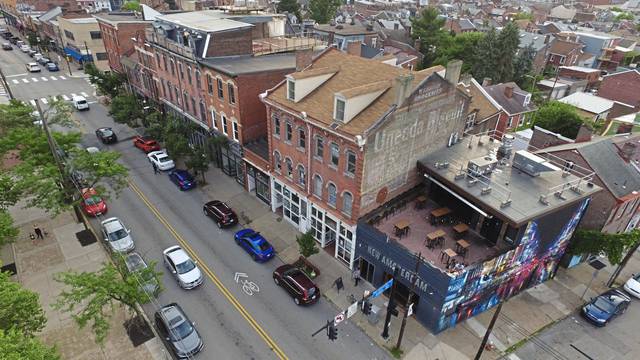No one spoke out against a proposal to make permanent a temporary zoning law that requires developers of any project with 20 or more units in Lawrenceville to set aside 10% of their units for people who earn lower incomes.
Instead, Pittsburgh Planning Commission members Tuesday heard from residents in the neighborhood, members of civic groups and others ask planning commissioners to endorse the proposal and expand it to require 15% of the units of new developments.
“Inclusionary zoning is one of the cures for the systemic illness” of the neighborhood’s booming property values, said Helen Gerhardt, a member of the community group Lawrenceville United.
It has worked since the zoning overlay district started in 2019, Gerhardt said.
Then, city council created the overlay district in Lawrenceville that required 10% of any project involving 20 or more units be affordable for people earning at least 50% of the Allegheny County’s area mean income. That figure is defined as $38,000 for a family of four.
Council approved extending the district through July, but it would expire unless the planning commission endorses making it permanent and council approves it.
There is no vocal opposition to the overlay, but planning commissioners Tuesday discussed the process they need to use to do it.
Changing the percentage to 15% of the units would involve notifying Lawrenceville residents, having another public hearing and then making a recommendation for council to act on it.
The program is the first in Pittsburgh to use inclusionary zoning to combat rising property values and gentrification by requiring some new housing be affordable.
It’s important to people like Lawrenceville resident Heather Sage, who moved to the neighborhood in 2004. She didn’t provide specific details, but said the value of the home she and her husband bought then has tripled and they could not afford it in today’s market.
She called the inclusionary zoning in place a tool to keep people from being unable to afford to live in the neighborhood.
The move is also supported by Councilwoman Deb Gross, who represents the neighborhood. Gross also endorsed increasing the percentage of units to 15%, she told the planning commission.
Making the zoning law permanent is only one of the things officials are working on to increase the level of affordable housing in the city, Planning Director Andrew Dash said.
The city is also working on a housing “affordability tracker” to log housing costs citywide. The city is also updating a housing needs assessment that was last completed in 2016. In addition, the ForgingPGH program was launched last year. It is the city’s first comprehensive planning effort in the city, Dash said.
“This is one step of many,” Dash said of the inclusionary zoning measure.
Commissioners talked about refining the wording of the law so it can withstand the test of time, as zoning laws are in place for long periods and the process to change them is lengthy.
The commission recommended to council making the Lawrenceville zoning law permanent and also asked council to explore whether the law needs to be clarified to address issues of accessibility, resale prices, auditing protocols, management and increasing the amount of units made affordable to 15% or more.








